Wendy Chung is a board-certified clinical and molecular geneticist with more than 25 years of experience in human genetic disease research. In this episode, Wendy delves deep into the world of genetics by first exploring the historical landscape of genetics prior to decoding the human genome, contrasting it with what we know today thanks to whole genome and exome sequencing. She provides an overview of genetic testing by differentiating between various genetic tests such as direct-to-consumer, clinical, whole genome sequencing, and more. Additionally, Wendy unravels the genetic underpinnings of conditions such as PKU, breast cancer, obesity, autism, and cardiovascular disease. Finally, Wendy goes in depth on the current state and exciting potential of gene therapy while also contemplating the economic implications and ethical nature of gene editing.
Subscribe on: APPLE PODCASTS | RSS | GOOGLE | OVERCAST | STITCHER
We discuss:
- Wendy’s interest in genetics and work as a physician-scientist [2:45];
- The genetics of phenylketonuria (PKU), a rare inherited disorder [5:15];
- The evolution of genetic research: from DNA structure to whole genome sequencing [18:30];
- Insights and surprises that came out of the Human Genome Project [28:30];
- Overview of various types of genetic tests: direct-to-consumer, clinical, whole genome sequencing, and more [34:00];
- Whole genome sequencing [39:30];
- Germline mutations and the implications for older parents [45:15];
- Whole exome sequencing and the importance of read depth [50:30];
- Genetic testing for breast cancer [54:00];
- What information does direct-to-consumer testing provide (from companies like 23andMe and Ancestry.com)? [1:01:30];
- The GUARDIAN study and newborn genetic screening [1:06:30];
- Treating genetic disease with gene therapy [1:18:00];
- How gene therapy works, and the tragic story of Jesse Gelsinger [1:22:00];
- Use cases for gene therapy, gene addition vs. gene editing, CRISPR, and more [1:28:00];
- Two distinct gene editing strategies for addressing Tay-Sachs and fragile X syndrome [1:37:00];
- Exploring obesity as a polygenic disease: heritability, epigenetics, and more [1:41:15];
- The genetics of autism [1:48:45];
- The genetics of cardiovascular disease [2:01:45];
- The financial costs and economic considerations of gene therapy [2:06:15];
- The ethics of gene editing [2:12:00];
- The future of clinical genetics [2:21:00]; and
- More.
Wendy’s interest in genetics and work as a physician-scientist [2:45]
- Wendy is moving from New York to boston
- She’s going to be the Chair of Pediatrics at Boston Children’s Hospital and will be at Harvard Medical School
You’re both an MD and a PhD, how do you balance your time between the lab and clinical practice?
- They split about 20% clinical, 80% research, but truth be told, they’re really together
- When she thinks about things, it starts with a patient and ends with a patient
- It starts with a patient in terms of clinical seeing them
- Many times the answers aren’t obvious, and so it becomes a research question
- And at the end of the day, it has to go back to the patient
- Within that split, it signifies how much we have to learn and why research is so important to improve clinical care
Wendy’s education
Did you do a combined MD-PhD or MSTP program?
You did your PhD first and then went to medical school
- Wendy did a combined program between Cornell and Rockefeller
- Since Rockefeller doesn’t have a medical school, that is done at Cornell
- She knew she wanted to be a physician scientist
What drew you to your current field of genetics? How would you describe to somebody what it is you do in the lab?
- Wendy was fortunate enough, early in her career, to be exposed to the National Institutes of Health
- As an undergraduate, she was able to spend summers there
- She was a biochemistry major as an undergrad and had the ability to work on phenylketonuria (PKU) (mostly in the laboratory)
- She was able to spend time at NIH at the hospital and seeing patients, and realized this whole paradigm, which today is really how she does things
- Thinking about how these pieces fit together
“I couldn’t really think about the science without thinking about the patients, and I couldn’t move forward and fill the gaps in our knowledge for patients unless I did the science.”‒ Wendy Chung
- She happened to be good at both, and so it was natural for her to do both
- She was young and not so worried about the number of gray hairs by the time she finished
- So she set out on this relatively long training path, but one that suited her extremely well
The genetics of phenylketonuria (PKU), a rare inherited disorder [5:15]
PKU is a good introduction to a genetic disease
Tell folks what it is and how frequently it occurs
- PKU stands for phenylketonuria and it was how we started newborn screening
- It was a paradigm in terms of patients and families really working together to improve care and being very much partners in that
- As a biochemistry major in the late ‘80s, Wendy was interested in the biochemistry of PKU, but she realized that a lot of what she was doing was genetic sequencing to understand the genetic basis of this what we call a Mendelian or single gene condition
- In this particular case, we did know the gene responsible for PKU
- But there were so many other things that we were seeing that we didn’t yet know the genes for these underlying conditions
- It was coincidental and fortuitous that the year she started her MD-PhD program was the year the Human Genome Project was announced
- She had the foresight (or good luck) to be able to see that it was going to be a brand new future, when we would have that entire encyclopedia of information to be able to think about human disease differently
- And thinking about opportunities in the future and what one could do with the information when we had it
- She really planned her career in thinking about what she’d be able to do 10 or 20 years after she started
- She’s spent a lot of her time using that information and trying to apply it to health
What is the clinical manifestation of PKU?
{end of show notes preview}
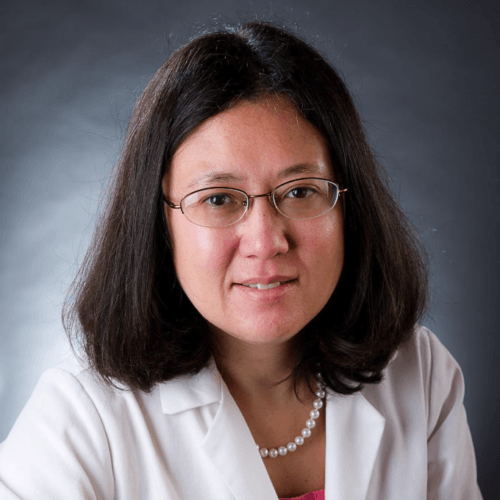
Wendy Chung, M.D., Ph.D.
Wendy Chung earned her BA in biochemistry and economics at Cornell University. She then entered a MD-PhD program where she earned her PhD from Rockefeller University and her MD from Cornell University. She was a graduate student of Dr. Rudy Leibel. She completed an internship, residency, and fellowship at the Columbia University Medical School, New York-Presbyterian Hospital. Her residency focused on pediatrics, and her two fellowships focused on molecular genetics and clinical genetics. [Wikipedia]
Dr. Chung stayed at Columbia University Medical School as a Professor of Pediatrics. She was named the Kennedy Family Professor of Pediatrics (in Medicine). She served as the Chief of Clinical Genetics Division in the Department of Pediatrics, the Medical Director of Columbia’s Genetic Counseling Graduate Program, the Associate Director for Education at the Herbert Irving Comprehensive Cancer Center, and Co-Director of the Precision Medicine Resource within the Irving Institute for Clinical and Translational Research. In May of 2023, Dr. Chung accepted a position at Harvard Medical school, Boston Children’s hospital. [Columbia]
Recently Dr. Chung has been named Boston Children’s Hospital next Chief of the Department of Pediatrics. Harvard Medical School, Boston Children’s Hospital. She will also serve as the Mary Ellen Avery Professor at Harvard Medical School (HMS), and President of the Children’s Hospital Pediatric Associates. [Boston Children’s Hospital]
Dr. Chung’s research focuses on the genetic basis of a variety of human diseases such as obesity, type 2 diabetes, congenital heart disease, cardiomyopathies, arrhythmias, Long QT syndrome, pulmonary hypertension, endocrinopathies, congenital diaphragmatic hernias, cleft lip/cleft palate, seizures, intellectual disabilities, autism, inherited metabolic conditions, rare disorders, and breast and pancreatic cancer susceptibility. She also works on the implementation of genomic and precision medicine. Dr. Chung has identified over 50 new genetic conditions and has authored over 500 scientific papers.
Dr. Chung directs NIH funded research programs in human genetics of birth defects. She is the Principle Investigator of the GUARDIAN study. This is a research study that screens newborns for over 250 genetic conditions not currently included as part of standard newborn screening.
Dr. Chung is also the Principle Investigator of SPARK, a long-term autism research study. This is a study of over 100,000 people with autism and 175,000 of their family members. Over 100 genes have been linked to autism, and this study aims to better understand the genetic basis of this disease.
Dr. Chung has received numerous awards. She is a member of the National Academy of Medicine and American Association of Physicians. She was the recipient of the NY Academy of Medicine Medal for Distinguished Contributions in Biomedical Science, the Rare Impact Award from the National Organization of Rare Disorders, and the Presidential Award for Outstanding Teaching. Dr. Chung is rated one of New York Magazine’s best doctors and received the Castle Connolly Top Doctors’ award. [GUARDIAN study]


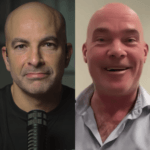
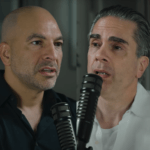
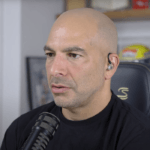
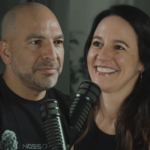
Thank you for covering autism in this episode. The Free Press recently ran a piece by Jill Escher that entirely downplays the theory that autism is a polygenic disorder (in the majority of cases). I am disappointed that The Free Press published inaccurate descriptors on the genetic underpinnings of most autism cases (excluding de novo cases where there are more unknowns. Yet de novo mutations are thought to account for ~14% of cases.) Hopefully people will find this episode and come out with a better understanding. Of course there is much research to be done and more questions to be answered but we must be diligent in our public communications to not be misleading about what we currently understand.